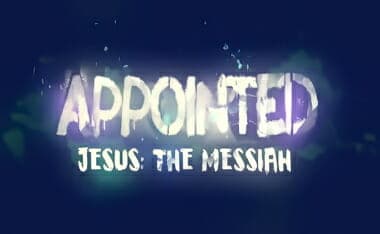Originally Posted July of 2014
~ Jump to the bottom: Joshua and the Canaanites ~
“Cursed them – Nor was this punishment too great for the offence, if it be considered, that their mocking proceeded from a great malignity of mind against God; that they mocked not only a man, and an ancient man, whose very age commanded reverence; and a prophet; but even God himself, and that glorious work of God, the assumption of Elijah into heaven; that they might be guilty of many other heinous crimes, which God and the prophet knew; and were guilty of idolatry, which by God’s law deserved death; that the idolatrous parents were punished in their children; and that, if any of these children were more innocent, God might have mercy upon their souls, and then this death was not a misery, but a real blessing to them, that they were taken away from that education which was most likely to expose them not only to temporal, but eternal destruction. In the name – Not from any revengeful passion, but by the motion of God’s Spirit, and by God’s command and commission. God did this, partly, for the terror and caution of all other idolaters and prophane persons who abounded in that place; partly, to vindicate the honour, and maintain the authority of his prophets; and particularly, of Elisha, now especially, in the beginning of his sacred ministry. Children – This Hebrew word signifies not only young children, but also those who are grown up to maturity, as Genesis 32:22, 34:4, 37:30, Ruth 1:5.”
~ Explanatory Notes on the Whole Bible by John Wesley [1754-65] (Source)
I was in a recent [now not so recent] debate about Biblical cruelty/ethics and the person brought up a verse that has not been brought up in conversation with me yet. It provided a fun learning curve on a specific verse and topic that opened up culture and manners of the early Biblical leaders and prophets of Israel. Mind you the person — involved in the debate — could not ground his presumed premise that this act would be morally wrong. In other words, without a Divine Law that both he and I can access to know an act was truly wrong, so I pointed to the idea that rape is really [if this skeptics position was correct] a natural outgrowth of a species surviving. I speak to this a bit in a chapter from my book:
How does the “carnal” person deal with the unnatural order of the homosexual lifestyle? Since it is a reality it is incorporated into their epistemological system of thought or worldview.[1] Henry Morris points out that the materialist worldview looks at homosexuality as nature’s way of controlling population numbers as well as a tension lowering device.[2] Lest one think this line of thinking is insane, that is: sexual acts are something from our evolutionary past and advantageous;[3] rape is said to not be a pathology but an evolutionary adaptation – a strategy for maximizing reproductive success.[4]
[….]
Ethical Evil?
The first concept that one must understand is that these authors do not view nature alone as imposing a moral “oughtness” into the situation of survival of the fittest. They view rape, for instance, in its historical evolutionary context as neither right nor wrong ethically.[5] Rape, is neither moral nor immoral vis-à-vis evolutionary lines of thought, even if ingrained in us from our evolutionary paths of survival.[6] Did you catch that? Even if a rape occurs today, it is neither moral nor immoral, it is merely currently taboo.[7]
[1] Worldview: “People have presuppositions, and they will live more consistently on the basis of these presuppositions than even they themselves may realize. By ‘presuppositions’ we mean the basic way an individual looks at life, his basic worldview, the grid through which he sees the world. Presuppositions rest upon that which a person considers to be the truth of what exists. People’s presuppositions lay a grid for all they bring forth into the external world. Their presuppositions also provide the basis for their values and therefore the basis for their decisions. ‘As a man thinketh, so he is,’ is really profound. An individual is not just the product of the forces around him. He has a mind, an inner world. Then, having thought, a person can bring forth actions into the external world and thus influence it. People are apt to look at the outer theater of action, forgetting the actor who ‘lives in the mind’ and who therefore is the true actor in the external world. The inner thought world determines the outward action. Most people catch their presuppositions from their family and surrounding society the way a child catches measles. But people with more understanding realize that their presuppositions should be chosen after a careful consideration of what worldview is true. When all is done, when all the alternatives have been explored, ‘not many men are in the room’ — that is, although worldviews have many variations, there are not many basic worldviews or presuppositions.” Francis A. Schaeffer, How Should We Then Live? The Rise and Decline of Western Thought and Culture (Wheaton: Crossway Books, 1976), 19-20.
[2] Henry M. Morris, The Long War Against God: The History and Impact of the Creation/Evolution Conflict (Grand Rapids: Baker Books, 1989), 136.
[3] Remember, the created order has been rejected in the Roman society as it is today. This leaves us with an Epicurean view of nature, which today is philosophical naturalism expressed in the modern evolutionary theories such as neo-Darwinism and Punctuated Equilibrium.
[4] Randy Thornhill and Craig T. Palmer, A Natural History of Rape: Biological Bases of Sexual Coercion (Cambridge: MIT Press, 2000), 71, 163. See also: Dale Peterson and Richard Wrangham, Demonic Males: Apes and the Origins of Human Violence (New York, NY: Houghton Mifflin Harcourt Publishing, 1997).
[5] Nancy Pearcy, Total Truth: Liberating Christianity from Its Cultural Captivity (Wheaton: Crossway Books, 2004), 208-209.
[6] Steven Pinker, The Blank Slate: The Modern Denial of Human Nature (New York: Penguin, 2002), 162-163.
[7] Norman L. Geisler and Frank Turek, I Don’t Have Enough Faith to be an Atheist (Wheaton: Crossway Books, 2004), 176-180.
Scientism, materialism, empiricism, existentialism, naturalism, and humanism – whatever you want to call it… it is still a metaphysical position as it assumes or presumes certain things about the entire universe. D’Souza points this a priori commitment out:
Naturalism and materialism are not scientific conclusions; rather, they are scientific premises. They are not discovered in nature but imposed upon nature. In short, they are articles of faith. Here is Harvard biologist Richard Lewontin: “We take the side of science in spite of the patent absurdity of some of its constructs, in spite of its failure to fulfill many of its extravagant promises of health and life, in spite of the tolerance of the scientific community for unsubstantiated just-so stories, because we have a priori commitment, a commitment — a commitment to materialism [matter is all that exists, nothing beyond nature exists]. It is not that the methods and institutions of science somehow compel us to accept a material explanation of the phenomenal world, but, on the contrary, that we are forced by our a priori adherence to material causes to create an apparatus of investigation and a set of concepts that produce material explanations, no matter how counter-intuitive, no matter how mystifying to the uninitiated. Moreover, that materialism is an absolute, for we cannot allow a Divine Foot in the door.”
Dinesh D’Souza points to this in his recent book, What’s So Great about Christianity (Washington, DC: Regnery Publishing, 2007), 161 (emphasis added).
The debater never engaged his a priori assumptions. This being said, I want to deal with the verse at hand we discussed. The important presumptive idea behind dealing with any literary work is to understand how one is to approach a text of antiquity. I deal with this quite well in a paper on the matter, and any apologist should become familiar with this idea (click the latte). Using the principles involved in the Aristotelian dictum, let us try and figure this seemingly horrid verse.
2Kings 2:23-25
He went up from there to Bethel, and while he was going up on the way, some small boys came out of the city and jeered at him, saying, “Go up, you baldhead! Go up, you baldhead!” And he turned around, and when he saw them, he cursed them in the name of the LORD. And two she-bears came out of the woods and tore forty-two of the boys. From there he went on to Mount Carmel, and from there he returned to Samaria.
Here the skeptic posits God’s wrath on 42 children, presumably innocent in that their greatest offense was calling someone a “bald-head.” It would be similar to a guy being called “four-eyes” by a bunch of kids and then whipping out an AK-47 and mowing them down… and then expecting you to view him as a moral agent. In accessing the following books,
✦ The New Manners & Customs of Bible Times;
✦ Manners and Customs in the Bible: An Illustrated Guide to Daily Life in Bible Times;
✦ An Introduction to the Old Testament;
✦ The IVP Bible Background Commentary: Old Testament;
✦ Old Testament Survey: The Message, Form, and Background of the Old Testament;
✦ A Popular Survey of the Old Testament;
✦ New International Encyclopedia of Bible Difficulties;
✦ Hard Sayings of the Bible;
✦ When Critics Ask: A Popular Handbook on Bible Difficulties.
I noticed something was missing. That is, a bit more of what is not said in the text, but we can assume using and accessing what any historical literary critic would with the principles that predate Christ — mentioned in the above “latte” link. Mind you, many of the responses in my home library that I came across were great, and, in fact they made me dig a bit further. (I do not want the reader to think that I place myself on a higher academic level that these fine theologians and professors.)
 The word Hebrew translated here as “children” (na’ar) often means official or servant and doesn’t necessarily even refer to age at all. Mephibosheth’s servant Ziba is referred to as na’ar (2 Samuel 16:1), yet he has fifteen sons. The man that Boaz has positioned as boss over his fieldworkers is na’ar—not a position one grants to children (Ruth 2:5-6). The word na’ar is translated as “servant” over fifty times (roughly a fifth of the times it appears in Scripture).
The word Hebrew translated here as “children” (na’ar) often means official or servant and doesn’t necessarily even refer to age at all. Mephibosheth’s servant Ziba is referred to as na’ar (2 Samuel 16:1), yet he has fifteen sons. The man that Boaz has positioned as boss over his fieldworkers is na’ar—not a position one grants to children (Ruth 2:5-6). The word na’ar is translated as “servant” over fifty times (roughly a fifth of the times it appears in Scripture).
(Source)
Three big points stuck out from texts I reviewed:
1) “LITTLE KIDS”
“Little children” is an unfortunate translation. The Hebrew expression neurim qetannim is best rendered “young lads” or “young men.” From numerous examples where ages are specified in the Old Testament, we know that these were boys from twelve to thirty years old. One of these words described Isaac at his sacrifice in Genesis 22:12, when he was easily in his early twenties. It described Joseph in Genesis 37:2 when he was seventeen years old. In fact, the same word described army men in 1 Kings 20:14-15…these are young men ages between twelve and thirty.” (Hard Sayings of the Bible)
2) HARMLESS TEASING/PUBLIC SAFETY
A careful study of this incident in context shows that it was far more serious than a “mild personal offense.” It was a situation of serious public danger, quite as grave as the large youth gangs that roam the ghetto sections of our modern American cities. If these young hoodlums were ranging about in packs of fifty or more, derisive toward respectable adults and ready to mock even a well-known man of God, there is no telling what violence they might have inflicted on the citizenry of the religious center of the kingdom of Israel (as Bethel was), had they been allowed to continue their riotous course. (Encyclopedia of Bible Difficulties)
The harmless “teasing” was hardly that–they were direct confrontation between the forces of Baal and the prophet of YHWH that had just healed the water supply (casting doubt on the power and beneficence of Baal!). This was a mass demonstration (if 42 were mauled, how many people were in the crowd to begin with? 50? 100? 400?):
“As Elisha was traveling from Jericho to Bethel several dozen youths (young men, not children) confronted him. Perhaps they were young false prophets of Baal. Their jeering, recorded in the slang of their day, implied that if Elisha were a great prophet of the Lord, as Elijah was, he should go on up into heaven as Elijah reportedly had done. The epithet baldhead may allude to lepers who had to shave their heads and were considered detestable outcasts. Or it may simply have been a form of scorn, for baldness was undesirable (cf. Isa. 3:17, 24). Since it was customary for men to cover their heads, the young men probably could not tell if Elisha was bald or not. They regarded God’s prophet with contempt….Elisha then called down a curse on the villains. This cursing stemmed not from Elisha pride but from their disrespect for the Lord as reflected in their treatment of His spokesman (cf. 1:9-14). Again God used wild animals to execute His judgment (cf., e.g., 1 Kings 13:24). That 42 men were mauled by the two bears suggests that a mass demonstration had been organized against God and Elisha.” (Bible Knowledge Commentary)
3) ELISHA’S MISSION-HELPING NEEDY
The chapter closes with two miracles of Elisha. These immediately established the character of his ministry–his would be a helping ministry to those in need, but one that would brook no disrespect for God and his earthly representatives. In the case of Jericho, though the city had been rebuilt (with difficulty) in the days of Ahab (1 Kings 16:34, q.v.), it had remained unproductive. Apparently the water still lay under Joshua’s curse (cf. Josh 6:26), so that both citizenry and land suffered greatly (v. 19). Elisha’s miracle fully removed the age-old judgment, thus allowing a new era to dawn on this area (vv. 20-22). Interestingly Elisha wrought the cure through means supplied by the people of Jericho so that their faith might be strengthened through submission and active participation in God’s cleansing work. (Encyclopedia of Bible Difficulties)
MORE CAN BE FOUND HERE:
- Elisha and the Lads of Bethel
- Question…wasn’t Elisha very cruel when he sent those bears against those little kids who were teasing him about being bald?
- Positive Atheism – Cliff Walker: Weak Bible Week Poster, part 4 of 7.
All good stuff, but something is missing. During the course of the debate I pieced together some truths, using culture and history as keys to a “crime scene.” Again, I want to stress what some of the habits were in this small town where this group of people came from:
Molech was a Canaanite underworld deity represented as an upright, bull-headed idol with human body in whose belly a fire was stoked and in whose arms a child was placed that would be burnt to death. It was not just unwanted children who were sacrificed. Plutarch reports that during the Phoenician (Canaanite) sacrifices, “the whole area before the statue was filled with a loud noise of flutes and drums so that the cries and wailing should not reach the ears of the people.”
Sean McDowell and Jonathan Morrow, Is God Just a Human Invention? And Seventeen Other Questions Raised by the New Atheists (Grand Rapids, MI: Kregel Publications, 2010), 177.
This crowd of persons was older than what is typically posited by skeptics. Secondly, this group was a very bad lot. But didn’t explain why bald-head was egregious enough for God to call 42 scurvy bastards to judgement. To be fair, I sympathize with the skeptic here. That being said, there is more to the story.
I want us to view some artistic drawings of historical figures from Israels history: priests, prophets, spiritual leaders, and even Flavius Josephus.
What did you notice above in the cover to an A&E documentary? Yup, a turban as well as a cloak which covers the heads of the priests and prophets. “Biblical Dress” is mentioned pretty well in these few sentences: “The Bible tells how fine linen was wrapped around the head of the High Priest as a turban or mitre — the saniph or kidaris (Exodus 28:39). Ordinary people wore a kerchief over the head, held tight by a cord reminiscent of the Arab headdress commonly worn today, the ‘aggal.”
Christian Standard Bible [CSB], Exodus 28:1–5
And this:
- In public the Jews always wore a turban, for at certain seasons of the year it is dangerous in Palestine to expose the head to the rays of the sun. This turban was of thick material and passed several times around the head. It was somewhat like our handkerchief and was made of linen, or recently of cotton. The patriarch Job and the prophet Isaiah mention the use of the turban as a headdress (Job 29:14, A. R. V. margin; Isa. 3:23, A. R. V.). In place of the turban, the Palestinian Arabs today, for the most part, wear a head veil called “Kaffieh” which hangs down over part of their garment.
— Fred H. Wight, Manners and Customs of Bible Lands (Moody Press, 1953 | PDF)
-
Head Covering. Something used to cover one’s head either for protection or for religious reasons. Men wore either a cap, turban, or headscarf to protect against the sun. The cap was similar to a modern skullcap and was sometimes worn by the poor. The turban (Isaiah 3:23) was made of thick linen wound around the head with the ends tucked inside the folds. The priest’s turban had a plate strapped to it bearing the inscription “Holy to the Lord” (Ex 28:36). The head-scarf was made from a square yard of cloth, folded in half to form a triangle. The sides fell over the shoulders and the V-point down the back, and it was held in place by a headband made of cord. About the 2nd century BC. male Jews began to wear phylacteries on their foreheads, small leather boxes containing special scripture passages, at morning prayers and at festivals, but not on the Sabbath.
— Walter A. Elwell and Barry J. Beitzel, “Head Covering,” in Baker Encyclopedia of the Bible (Grand Rapids, MI: Baker Book House, 1988), 936.
Take note of the below as well.
I posted multiple images to drive a point home in our mind. The prophet Elisha would have had a couple cultural accoutrements that changes this story from simple name calling to an assault. He wouldn’t have been alone either, in other words, he would have had some people attached to him that would lay down their lives to protect him. And secondly, he would have had a head covering on, especially since he was returning from a “priestly” intervention. So we know from cultural history the following:
- He would have had a head dressing on — some sort of turbin;
- and he would have had an entourage of men to dissuade any attack or mistreatment of a priest of Israel on a journey.
One last point before we bullet point the complete idea behind the Holy and Rightful judgement from the Judge of all mankind. There were 42 persons killed by two bears. Obviously this would require many more than 42 people. Why? What happens when you have a group of ten people and a bear comes crashing out of the bushes in preparation to attack? Every one will immediately scatter! In the debate I pointed out that freezing 42 people and allowing the bears time to go down the line to kill each one would be even more of a miracle than this skeptic would want to allow. So the common sense position would require a large crowd and some sort of terrain to cut off escape. So the crowd would probably have been at least a few hundred.
Also, this holy man of God was coming back from a “mission,” he would have had an entourage with him ~ as already mentioned, as well as having some sort of head-covering on as pictured above ~ as already mentioned.
QUESTION:
So, what do these cultural and historical points cause us to rightly assume?
ANSWER:
That the crowd could not see that the prophet was bald.
Which means they would have had to of gotten physical — forcefully removing the head covering. Which means also that the men with the prophet Elisha would have also been overpowered. So lets bullet point the points that undermine the skeptics viewpoint.
✔ The crowd was in their late teens to early twenties;
✔ they were antisemitic (this is known from most of the previous passages and books);
✔ they were from a violently cultic city;
✔ the crowd was large;
✔ the crowd had already turned violent.
These points caused God in his foreknowledge to protect the prophet and send in nature to disperse the crowd. Nature is not kind, and the death of these men were done by a just Judge. This explains the actions of a just God better than many of the references I read.
I do want to end this post by inviting you to read an excellent treatment of this topic over at TrueFreeThinker: “Positive Atheism – Cliff Walker : Weak Bible Week Poster, part 4 of 7.“
Joshua and the Canaanites
This is an update of sorts, and it deals with the idea that God ordered ALL persons to be destroyed (men, women, and children) in the book of Joshua. But is this the directive from God? Scripture does not support this idea as a whole, and we shall take this journey together to find a solution to a seemingly tough subject.
There is a very important principle involved with reading the Bible… it is one of the first things taught to seminarians as well as layman. And it is this:
- “The Bible interprets the Bible.”
It is that simple. Now of course there are some other basics one must account for as they mature as a Christian, see my post on hermeneutics for instance. But let’s start with that simple sentence above. We will take a short quote from the larger portions that will end this small caveat. The book is by Paul Copan, and is entitled: Is God a Moral Monster? Making Sense of the Old Testament God.
(May I also recommend this article, a summary of Copan’s three chapters from his book: “How Could God Command Killing the Canaanites?“)
Here is the excerpt with the portion highlighted:
The books of Joshua and Judges suggest that taking the land included less-than-dramatic processes of infiltration and internal struggle. Israel’s entrance into Canaan included more than the military motif. Old Testament scholar Gordon McConville comments on Joshua: we don’t have “a simple conquest model, but rather a mixed picture of success and failure, sudden victory and slow, compromised progress.”
Likewise, Old Testament scholar David Howard firmly states that the conquest model needs modification. Why? Because “the stereotypical model of an all-consuming Israelite army descending upon Canaan and destroying everything in its wake cannot be accepted. The biblical data will not allow for this.” He adds that the Israelites entered Canaan and did engage militarily “but without causing extensive material destruction.”
I will repeat that: “The Biblical data will not allow for this.” Another short excerpt taken from pages 170-171 reads thus:
Notice first the sweeping language in Joshua 10:40: “Thus Joshua struck all the land, the hill country and the Negev and the lowland and the slopes and all their kings. He left no survivor, but he utterly destroyed all who breathed, just as the LORD, the God of Israel, had commanded.” Joshua used the rhetorical bravado language of his day, asserting that all the land was captured, all the kings defeated, and all the Canaanites destroyed (cf. 10:40-42; 11:16-23: “Joshua took the whole land . . . and gave . . . it for an inheritance to Israel”). Yet, as we will see, Joshua himself acknowledged that this wasn’t literally so.
Scholars readily agree that Judges is literarily linked to Joshua. Yet the early chapters of Judges (which, incidentally, repeat the death of Joshua) show that the task of taking over the land was far from complete. In Judges 2:3, God says, “I will not drive them out before you.” Earlier, Judges 1:21, 27-28 asserted that “[they] did not drive out the Jebusites”; “[they] did not take possession”; “they did not drive them out completely.” These nations remained “to this day” (Judg. 1:21). The peoples who had apparently been wiped out reappear in the story. Many Canaanite inhabitants simply stuck around.
Some might accuse Joshua of being misleading or of getting it wrong. Not at all. He was speaking the language that everyone in his day would have understood.
As you read on you will notice that God seems to contradict Himself, so does Joshua. UNLESS there is a cultural explanation that 21st century geeks do not notice. Again, I write more in-depth on this here.
That all being said, here are a few pages from the selected chapter. And may I say that the three chapters on the Canaanites were so enlightening. Why? Because they opened up the Scriptures more by dealing with what seem to be inconsistencies in Scripture but are explained well by Scripture. the following few pages show this to be the case, that is, exegesis (click each page to enlarge… if you right click your mouse and choose, “Open Lin In New Tab,” you will be able to enlarge the text dramatically — for older eyes):
(AGAIN, click to enlarge)














































































